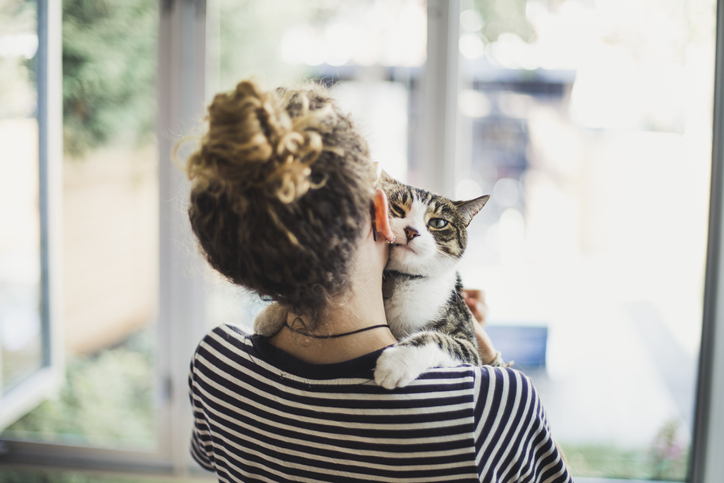Educational Articles
-
Chinchillas are generally hardy animals but are susceptible to several unique health conditions; understanding them will help you care for your pet and manage potential health problems. This handout describes the most common conditions seen in pet chinchillas.
-
Cryosurgery is the application of extreme cold to destroy abnormal or diseased tissue. In animals, the technique is used to treat tumors in locations where conventional surgery would be difficult or impossible. Cryosurgery is sometimes also used for the removal of aberrant or extra eyelashes (distichiasis).
-
Common conditions of pet ferrets include diarrhea, intestinal foreign bodies, parasites, heart disease, and various tumors. This handout outlines the causes, clinical signs, and treatment options for each of these conditions. Any variation from normal should be a cause for concern and should be immediately evaluated by your veterinarian.
-
Common conditions of pet rodents include respiratory diseases, gastrointestinal problems, dental problems, and cancer. Diseases of the skin may cause itching, hair loss or flaky skin in rodents. All rodents have teeth that grow continuously throughout their lives. Occasionally, these teeth grow too long and cut into the gums, causing pain when eating. Cancer is often seen in pet rodents, especially mammary (breast) tumors in rats and mice. Rodents with signs of respiratory or GI disease or evidence of a tumor should be seen by a veterinarian who can properly diagnose and treat the underlying condition.
-
Mast cell tumors are one of the most common skin tumors in ferrets. These tumors are typically a small, raised growth on the skin that erupts, may bleed, then heal only to reoccur several weeks later in the same location. Unlike mast cell tumors in dogs, mast cell tumors in ferrets do not spread to internal organs.
-
Hedgehogs can have several unique problems, including cancer, dental disease, obesity, and foreign bodies. It is important for an owner to understand what these problems are so veterinary care can be provided to their hedgehog when needed and in a timely manner.
-
There are four major hormonal diseases in ferrets. This handout covers adrenal gland disease and diabetes mellitus. Adrenal gland disease occurs in a large number of ferrets in North America, while diabetes mellitus is a rare, but important problem.
-
There are many health and behavioral benefits associated with neutering your rabbit, such as preventing unwanted pregnancies, eliminating his risk for testicular cancer, and minimizing the stress associated with sexual frustration. This handout explains the neuter procedure, post-operative care at home, and, although rare, possible complications that could occur.
-
Neutering is also referred to as orchidectomy or castration. It is a surgical procedure in which the testicles are removed to sterilize or render a male animal infertile. There are many behavioral and health benefits associated with neutering your rat. Most rats are neutered between four and six months of age.
-
Penetrating wounds can look minor on the surface but may cause severe injury below the skin. A thorough assessment requires sedation or anesthesia and surgery may be required to address the extent of the injury. This handout outlines first aid steps a pet owner can take while transporting their injured pet to the veterinary hospital.


